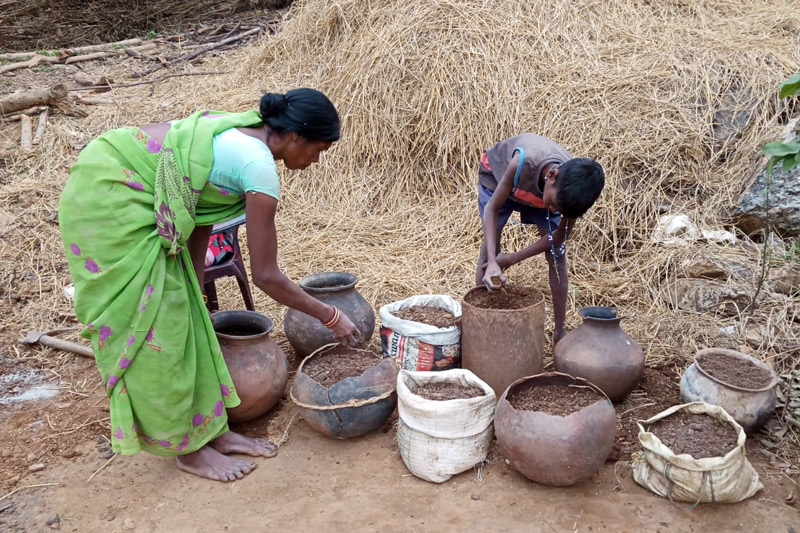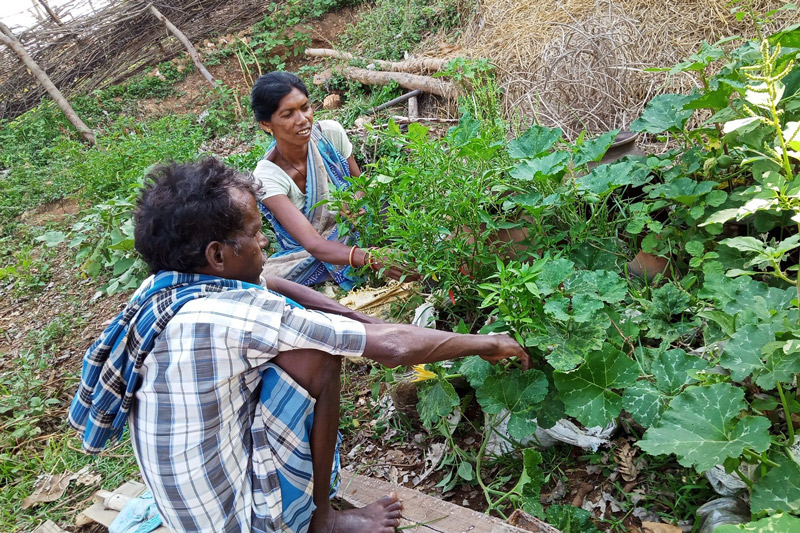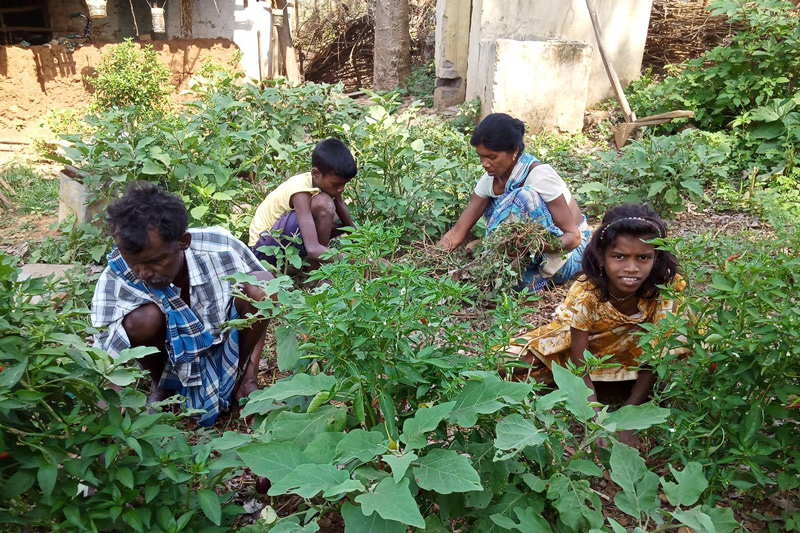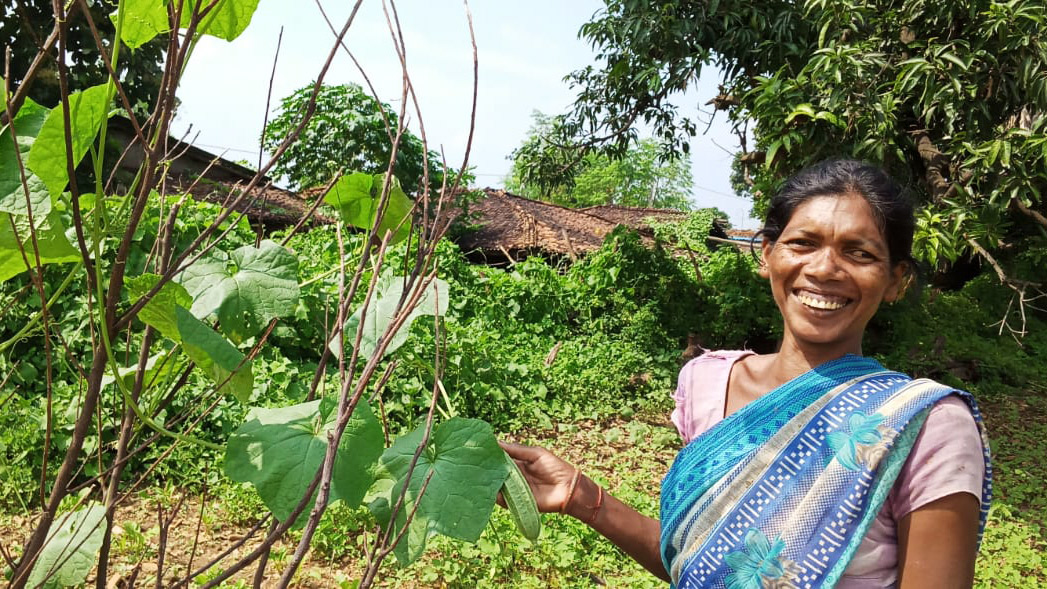As of the last week of May, 2020, India is in the ninth week of a nationwide lockdown to prevent the spread of the Corvid-19 pandemic. Only essential services are exempt. The crisis has put countless numbers out of work and further threatened the fragile livelihoods of the most vulnerable families living in poverty.
Sukanti Oram, an ultra-poor project participant, lives with her husband Sukra, her eleven year old son Ganesh and her nine year old daughter Jayanti in the B. Karuabahal village (Nuapada hamlet, Balisankara block) of Odisha. The family was dependent on earnings from daily wage labour, did not always have access to two square meals a day and nutritious vegetables and food were a distant dream. Most days, Sukanti and Sukra did not get work, and hence had no money. Their two-room kuchcha house—homes that low cost made with available materials like mud, bamboo, etc.—was vulnerable to torrential rains, storms and any natural disaster. Needless to say, surviving the lockdown became a big ordeal for daily wage workers.

In 2019, Trickle Up, in partnership with Odisha Livelihoods Mission, started working on Nutrition Gardens as a solution to the issue of malnutrition in ultra-poor families. In the first phase, Sukanti started working on her nutrition garden growing thirteen types of vegetables with the help of the field staff at SEWAK, a partner organisation of Trickle Up in Odisha. In addition, she received training on raising and caring for chickens and on the usage of organic pesticides.
In the second phase in early 2020, with seed support from SEWAK, Sukanti sowed seventeen different types of seeds in her nutrition garden. She used everything from broken pots, used plastic bags, and drums to sow the seeds.

“Initially, I wasn’t so interested in creating a nutrition garden. I didn’t understand how it could help when I was literally struggling to earn enough to feed my family,” said Sukanti.” A detailed discussion with the field staff convinced me to try. Today, as the entire nation is in lockdown and almost all economic activities have stopped for over two months. This Nutrition Garden is providing nutritious food for my family. Not only that, I am being able to save at least INR 2300 every month because of it.”
Covid-19 has created a difficult, if not dire, situation for the most vulnerable people. Sukanti is not exempt from the struggles, but thanks to her earlier efforts to begin a nutritional garden, she and her family have a greater degree of security during this tough time.

“I don’t have work, but my family is not starving and I am grateful for it.”
“I have also been sharing my produce with my neighbours to help them during these tough times,” says Sukanti. “It is hard to believe now that there was a time about a year ago, when my children didn’t even know what a carrot looked or tasted like!”
As the age-old adage states, a stitch in time saves nine.



